Achaia Meaning in the Bible: Region of Faith
In the Bible, Achaia refers to a prominent Roman province in southern Greece, comprising key cities such as Corinth and Athens. It held significant historical and cultural relevance, deeply influenced by Hellenistic traditions.
Apostle Paul engaged extensively in missionary activities within Achaia, evident from multiple mentions in the New Covenant. His epistles, especially those to the Corinthians, addressed both doctrinal and community issues, underscoring the region’s vital role in early Christian development.
This vibrant provincial hub not only facilitated the spread of Christianity but also enriched its theological and ecclesiastical foundations, inviting further exploration of its enduring legacy.

Achaia in the Bible: Meaning, Historical Significance, and Key Verses
| Aspect | Details |
|---|---|
| Term | Achaia |
| Meaning in the Bible | A Roman province in southern Greece, frequently mentioned in the New Testament as a hub for early Christian activity. |
| Historical Background | Achaia was part of the Roman Empire and included prominent cities like Corinth, where Apostle Paul established Christian communities. |
| Spiritual Significance | Symbolizes the expansion of Christianity and the unity among believers across regions. Achaia is noted for its generosity and faithfulness in supporting the church. |
| Key Mentions in the Bible | – Acts 18:12: Refers to Gallio, a proconsul of Achaia, during Paul’s ministry. – 2 Corinthians 1:1: Paul greets the churches in Achaia, showing their importance in the early Christian movement. – Romans 15:26: Highlights the generosity of believers in Achaia who contributed to the church in Jerusalem. |
| Notable Contributions | Achaia’s churches, particularly Corinth, played a vital role in spreading the Gospel and showcasing Christian generosity and unity. |
Geographical Location of Achaia
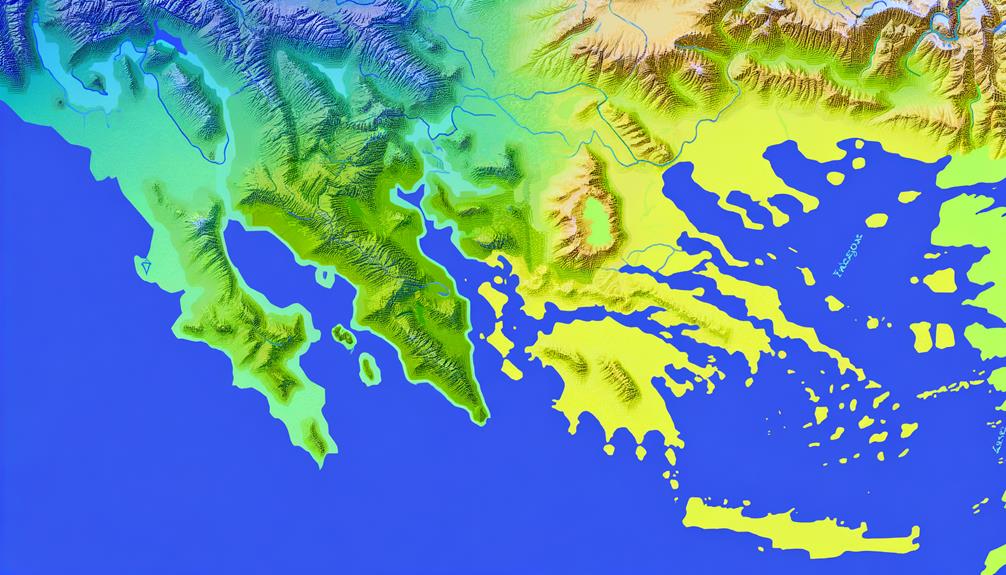
Situated in the southern part of ancient Greece, Achaia was a prominent Roman province that played a significant role in the New Scriptures narrative. This region, encompassing the northern Peloponnesian peninsula, included key cities such as Corinth and Athens, which were pivotal in early Christian missionary activities.
Theologically, Achaia served as a fertile ground for the Apostle Paul’s ministry, reflecting the expansion of the nascent Christian faith into Hellenistic territories. Textual analysis reveals multiple references to Achaia in the New Canon, underscoring its importance as a hub of early Christian communities.
Understanding Achaia’s geographical location provides critical insights into the socio-political and cultural dynamics that influenced the spread of Christianity during this formative period.
Historical Background of Achaia
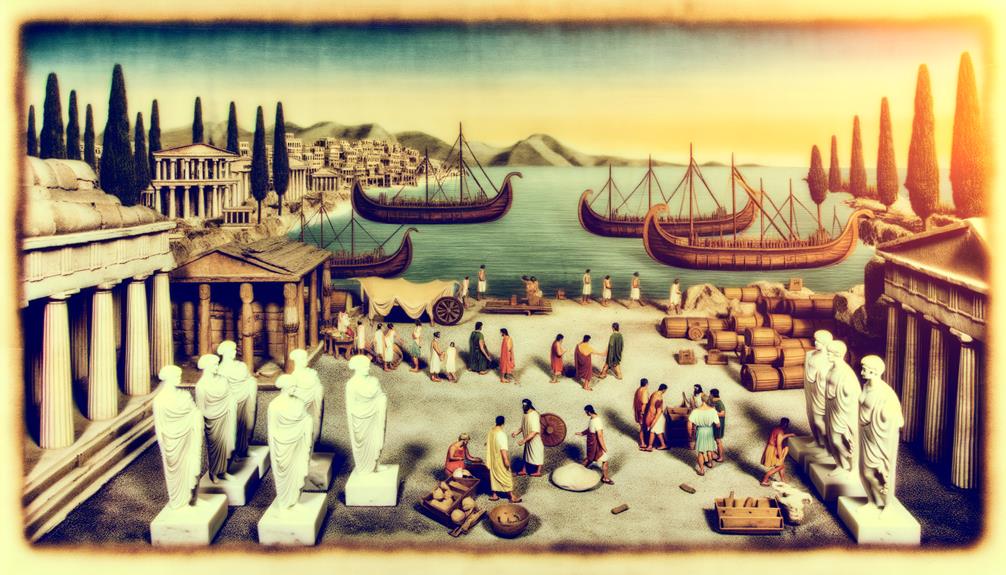
The historical background of Achaia reveals a complex tapestry of cultural, political, and religious influences that shaped its role in the early Christian era.
This region, encompassing southern Greece, was a significant center of Hellenistic culture and thought. Under the influence of Greek philosophy, Achaia developed a sophisticated intellectual environment that later intersected with early Christian teachings.
Additionally, the area was marked by a strong polytheistic tradition, with numerous temples and rituals dedicated to the pantheon of Greek gods. This religious diversity set the stage for the early Christian mission, presenting both opportunities and challenges for the spread of the Gospel.
Understanding Achaia’s historical context is essential for comprehending its significance in biblical narratives. Achaia, a region in ancient Greece, served as a crucial backdrop for many events described in the New Testament. It was here that Paul established early Christian communities, navigating a blend of Hellenistic culture and emerging Christian thought. Recognizing landmarks such as arcturus in biblical context not only enriches our understanding of the geographical landscape but also highlights the interplay between celestial imagery and spiritual themes in biblical teachings.
Achaia in the Roman Empire
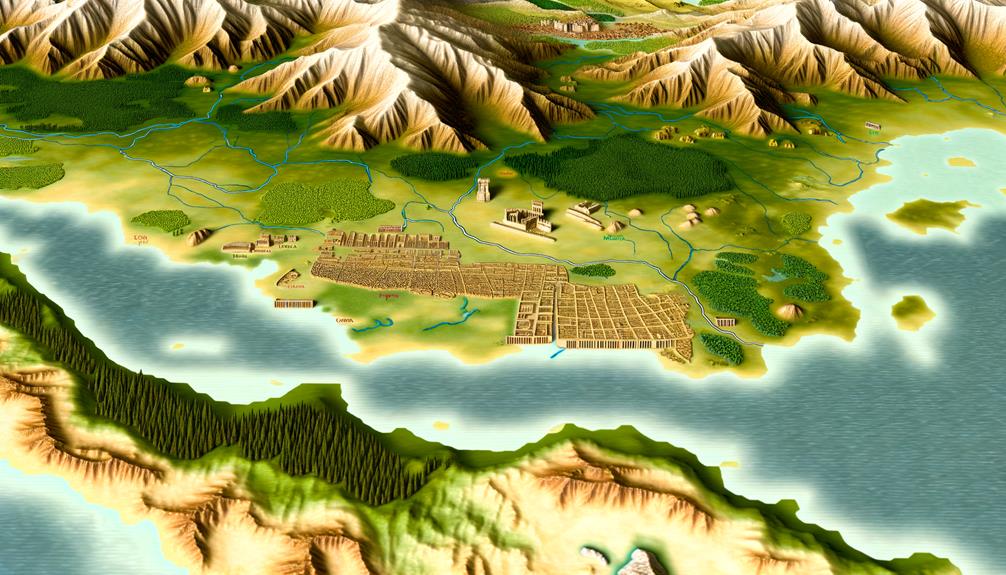
Under Roman rule, Achaia transformed into a provincial hub that played a pivotal role in the spread of Christianity and the administration of the early church. This region, encompassing southern Greece, became integral to the Roman Empire’s governance and religious landscape. The Apostle Paul’s missionary journeys frequently included stops in Achaia, where he established key Christian communities. The significance of Achaia is further underscored by its mention in various New Covenant texts, highlighting its ecclesiastical and geopolitical importance.
| Aspect | Description |
|---|---|
| Governance | Roman provincial administration |
| Religious Influence | Spread of Christianity |
| Key Figures | Apostle Paul |
| Biblical References | Multiple New Covenant mentions |
| Ecclesiastical Role | Early church administration |
This historical context enriches our understanding of Achaia’s strategic and spiritual legacy.
Key Cities in Achaia

Among the prominent cities in Achaia, Corinth stands out as a major center of early Christian activity and theological discourse, frequently mentioned in the Pauline Epistles.
Corinth’s strategic location facilitated its role as a vibrant hub of commerce and culture, enhancing its significance in the spread of Christianity. Paul’s letters to the Corinthians address various doctrinal and ethical issues, offering profound insights into the early church’s struggles and aspirations.
Another key city, Athens, known for its rich philosophical heritage, served as a backdrop for Paul’s discourse at the Areopagus, as recorded in Acts 17.
In addition, Cenchreae, the port city near Corinth, is noted in Romans 16:1 as the home of Phoebe, a deaconess, illustrating Achaia’s diverse Christian community.
Cultural Diversity in Achaia
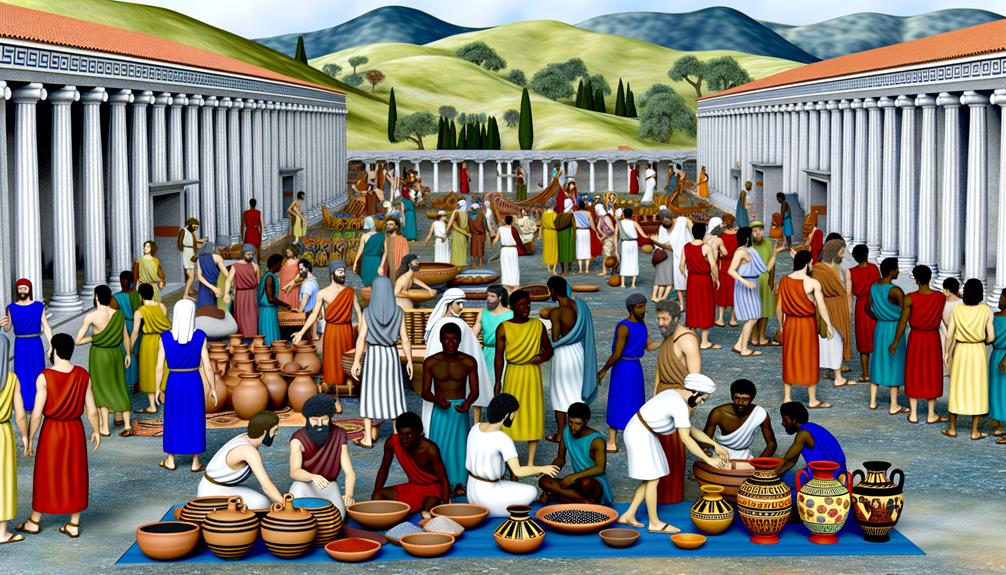
In addition to its notable cities, Achaia’s cultural diversity profoundly influenced the dynamics of early Christian communities. This region, encapsulating a mix of Greek, Roman, and Jewish cultures, created a unique theological and social landscape.
The following points elucidate the depth of this diversity:
- Greek Heritage: Achaia retained strong Hellenistic influences, evident in its language, philosophy, and customs, which shaped theological discourse and scriptural interpretations.
- Roman Governance: Roman political structures and legal frameworks provided both challenges and opportunities for the spread of Christianity.
- Jewish Diaspora: Jewish synagogues in Achaia served as initial contact points for Christian evangelists, facilitating early conversions and theological debates.
Understanding these elements is essential for comprehending the early Christian experience in Achaia.
Paul the Apostle’s Mission in Achaia

Paul the Apostle’s mission in Achaia was marked by significant theological engagement and strategic evangelism, profoundly impacting the region’s early Christian communities.
Paul’s arrival in Corinth, the principal city of Achaia, is documented in Acts 18, where he encountered both Jewish and Gentile audiences. His preaching emphasized the crucifixion and resurrection of Jesus Christ, foundational tenets that challenged existing religious paradigms.
Paul’s letters to the Corinthians reflect his doctrinal teachings and address moral and communal issues, underscoring his role in shaping Achaian ecclesiology.
His collaboration with figures like Aquila, Priscilla, and Apollos further strengthened the mission. Consequently, Paul’s endeavors in Achaia were instrumental in establishing a robust and enduring Christian presence in the province.
Early Christian Communities in Achaia
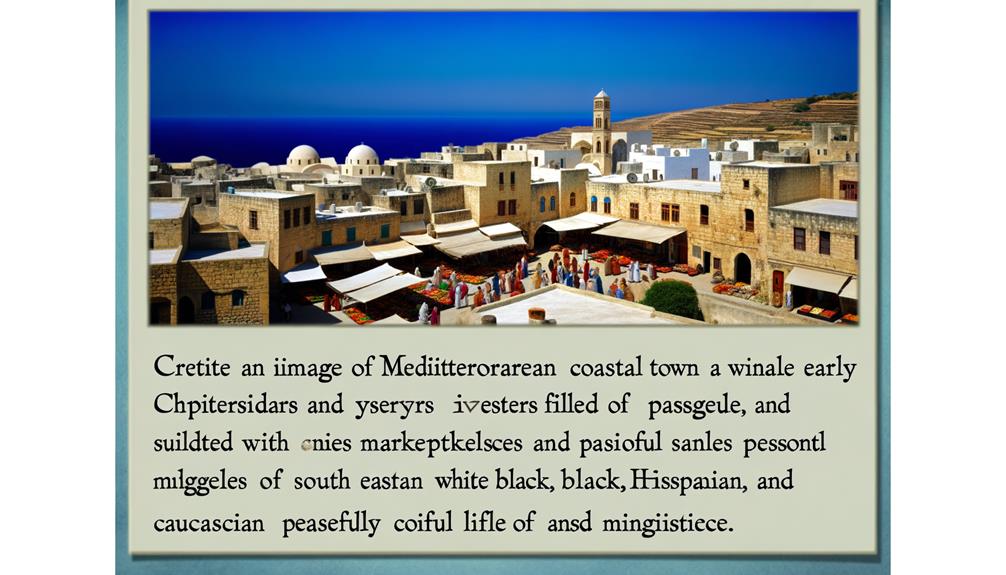
The early Christian communities in Achaia, emerging from a milieu of diverse religious beliefs and sociopolitical structures, exhibited a dynamic interplay of doctrinal development and communal solidarity.
These early believers navigated a complex landscape, fostering a distinct identity grounded in the teachings of Jesus Christ.
Key aspects of these communities included:
- Doctrinal Formation: Early Christians in Achaia contributed to the articulation of foundational Christian doctrines, synthesizing Jewish traditions and Greco-Roman thought.
- Communal Practices: They established communal practices, such as shared meals and collective worship, which reinforced unity and mutual support.
- Persecution and Perseverance: Despite facing persecution from both Roman authorities and local religious factions, the Achaian Christians demonstrated remarkable resilience and growth.
These elements were essential in shaping the early Christian movement in Achaia.
Biblical References to Achaia

Drawing from the New Covenant, Achaia is frequently referenced as a significant region for early Christian evangelism and theological correspondence.
Biblically, Achaia is highlighted in the Acts of the Apostles and the Pauline Epistles. Acts 18:12 mentions Gallio, the proconsul of Achaia, illustrating the region’s administrative importance.
Paul’s letters to the Corinthians (1 Corinthians 16:15 and 2 Corinthians 1:1) underscore the establishment and growth of early Christian communities in this province.
Romans 15:26 reveals the solidarity among Macedonian and Achaian believers in supporting the Jerusalem church.
Consequently, the scriptural references to Achaia not only provide historical context but also emphasize the region’s vital role in the propagation of the Christian faith.
Impact on Early Christianity
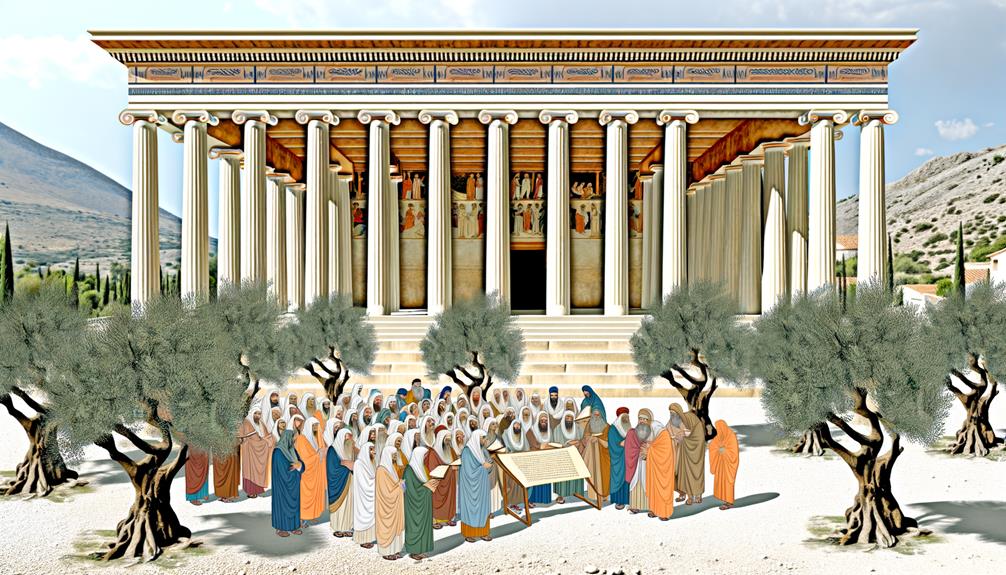
The region of Achaia played a pivotal role in the expansion of early Christianity, greatly influenced by Paul’s missionary journeys as documented in the New Scripture.
The apostle’s efforts in cities such as Corinth and Athens facilitated the establishment and growth of churches, which became central hubs for Christian teaching and community life.
This historical and theological context underscores Achaia’s importance in the broader narrative of the nascent Christian movement.
Paul’s Missionary Journeys
Paul’s missionary journeys greatly shaped the theological framework and expansion of early Christianity, particularly in regions like Achaia. His efforts in Achaia, especially in cities such as Corinth and Athens, were pivotal in establishing Christian communities and disseminating doctrinal teachings. Through exegetical analysis of Acts and Pauline Epistles, we observe the profound impact of his missions:
- Theological Clarification: Paul’s letters to the Corinthians address doctrinal issues and ethical conduct, providing a robust theological foundation.
- Cultural Engagement: In Athens (Acts 17), Paul engages with Greek philosophers, showcasing Christianity’s intellectual compatibility.
- Community Formation: Paul’s strategy included establishing local leaders and fostering communal ties, ensuring sustainable growth.
These elements underscore Paul’s influential role in early Christian expansion.
Growth of Churches
As Paul’s missionary endeavors catalyzed the proliferation of Christian communities, the early church witnessed a remarkable transformation in its structure and influence.
In regions such as Achaia, the establishment of congregations in cities like Corinth and Athens became pivotal. Textual analysis of Pauline epistles reveals a strategic focus on nurturing these nascent communities, emphasizing doctrinal soundness and communal unity.
Historically, Achaia’s socio-political landscape provided fertile ground for the spread of Christianity, blending Hellenistic and Roman influences.
The growth of churches in Achaia not only solidified regional Christian presence but also contributed to the broader ecclesiastical framework, facilitating theological discourse and missionary activities.
Consequently, Achaia emerged as a cornerstone in the burgeoning Christian world, shaping early ecclesiology and praxis.
Achaia’s Role in Paul’s Letters
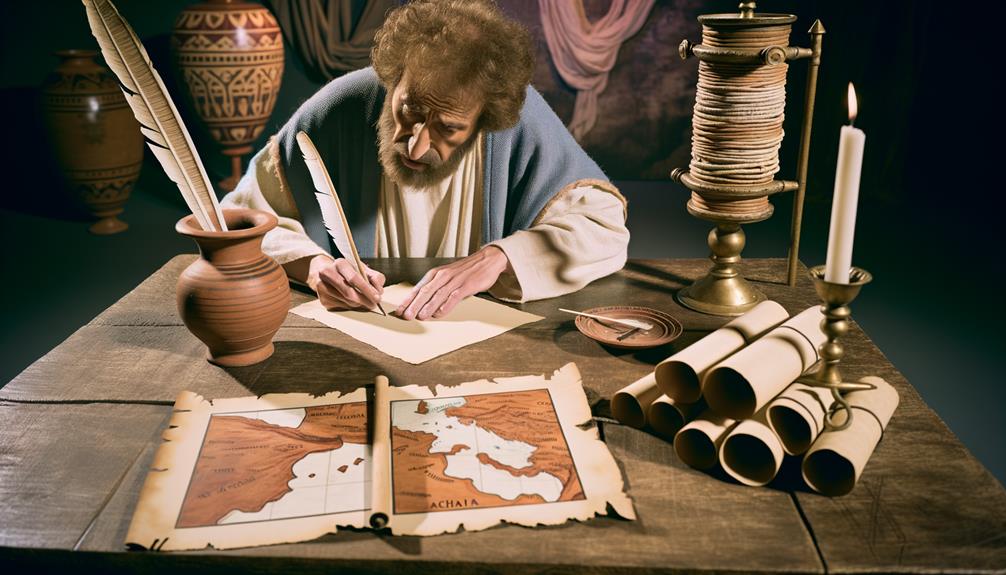
In examining Paul’s letters, Achaia emerges as a significant region for the early Christian church, providing essential context for understanding his missionary work and theological discourse.
Paul’s correspondence to the Corinthians highlights Achaia’s pivotal role in the spread of Christianity. Through textual analysis, we can identify key elements of Achaia’s influence:
- Community Building: Achaia was home to vibrant Christian communities, especially in Corinth, which Paul addressed in his epistles.
- Financial Support: Paul’s letters frequently mention the contributions from Achaian believers, underscoring their generosity.
- Doctrinal Clarification: The theological issues addressed in Paul’s letters to the Corinthians reflect the intellectual and spiritual challenges faced by the Achaian church.
These points elucidate Achaia’s foundational role in Paul’s ministry and the early church.
Achaia’s Legacy in Christian History
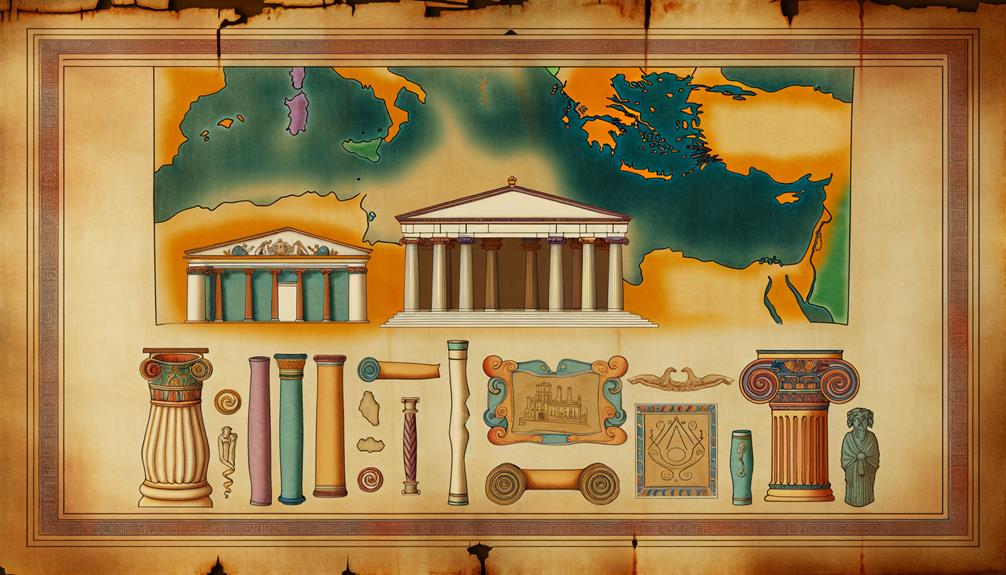
Achaia’s legacy in Christian history is profoundly marked by its early adoption of Christian teachings and its significant contributions to the theological and ecclesiastical developments of the nascent church. The region, encompassing key cities such as Corinth and Athens, became a pivotal center for Pauline ministry. The fervent faith of the Achaians is evident in their generous support for other Christian communities, as highlighted in Paul’s epistles. Furthermore, Achaia’s intellectual milieu fostered robust theological discourse, contributing to the foundational doctrines of Christianity.
| Aspect | Description |
|---|---|
| Early Adoption | Rapid acceptance of Christian teachings |
| Key Cities | Corinth and Athens |
| Pauline Ministry | A central hub for Paul’s missionary efforts |
| Theological Impact | Significant contributions to early Christian theology |
Achaia’s influence endures through its lasting theological contributions and historical significance.
Conclusion
The exploration of Achaia within biblical and historical contexts reveals a region that, while seemingly peripheral, played a pivotal role in the spread of early Christianity.
Achaia, with its diverse cultural tapestry and significant urban centers, offered fertile ground for Paul’s missionary endeavors.
Ironically, this Roman province, emblematic of imperial dominion, became a cornerstone for a faith proclaiming liberation from earthly powers.
Consequently, Achaia’s legacy endures, not as a mere footnote, but as a reflection of divine providence working through human history.






